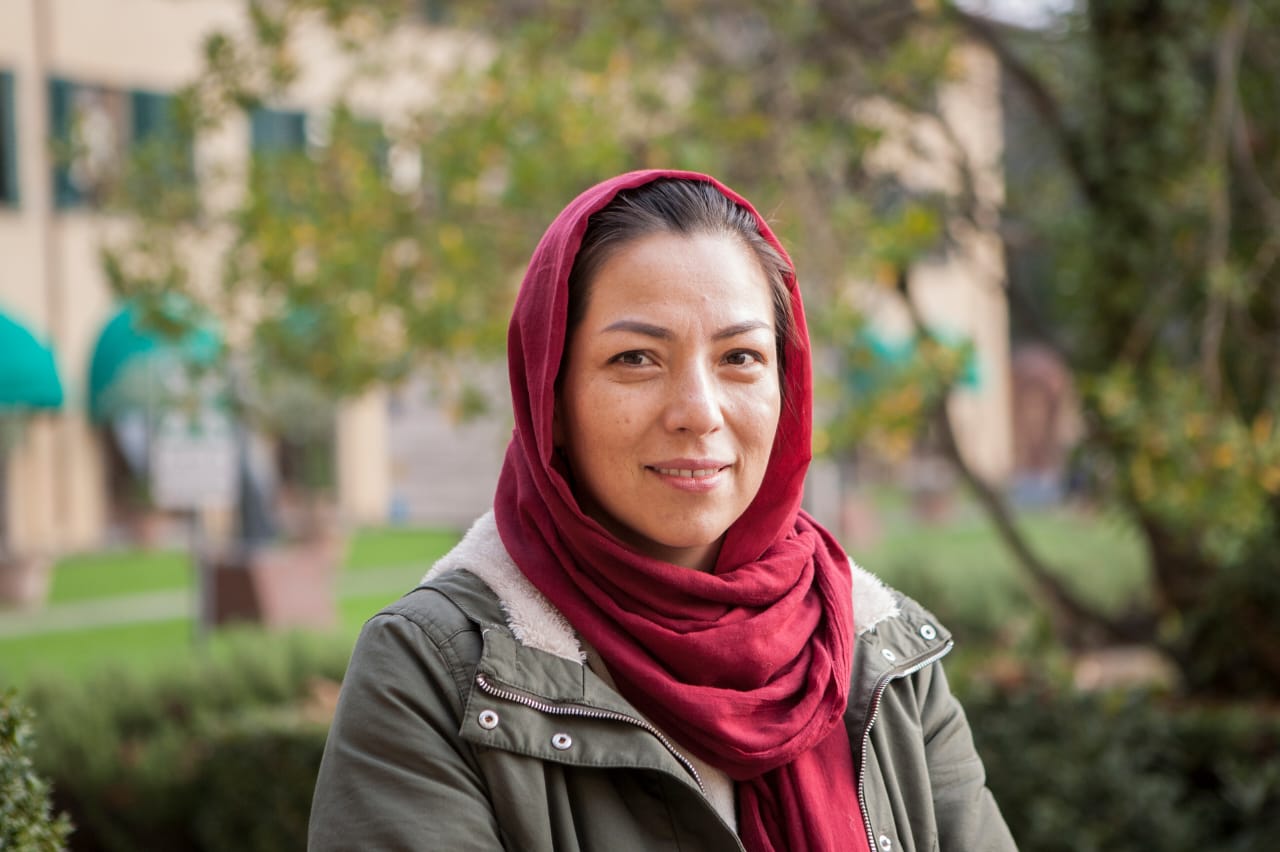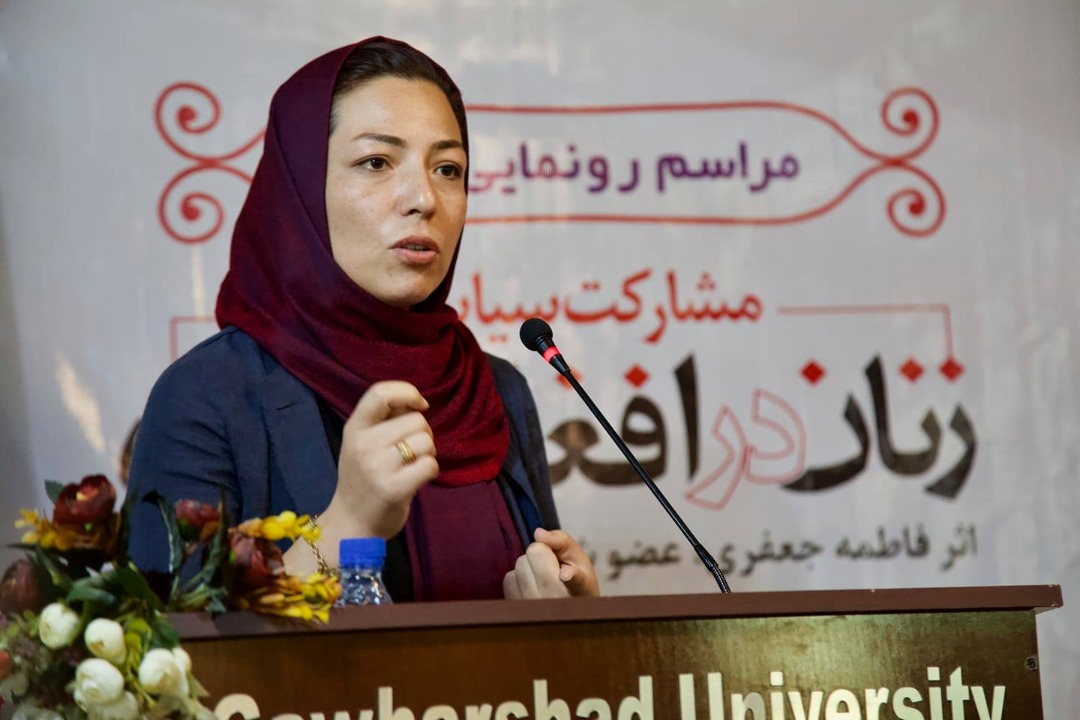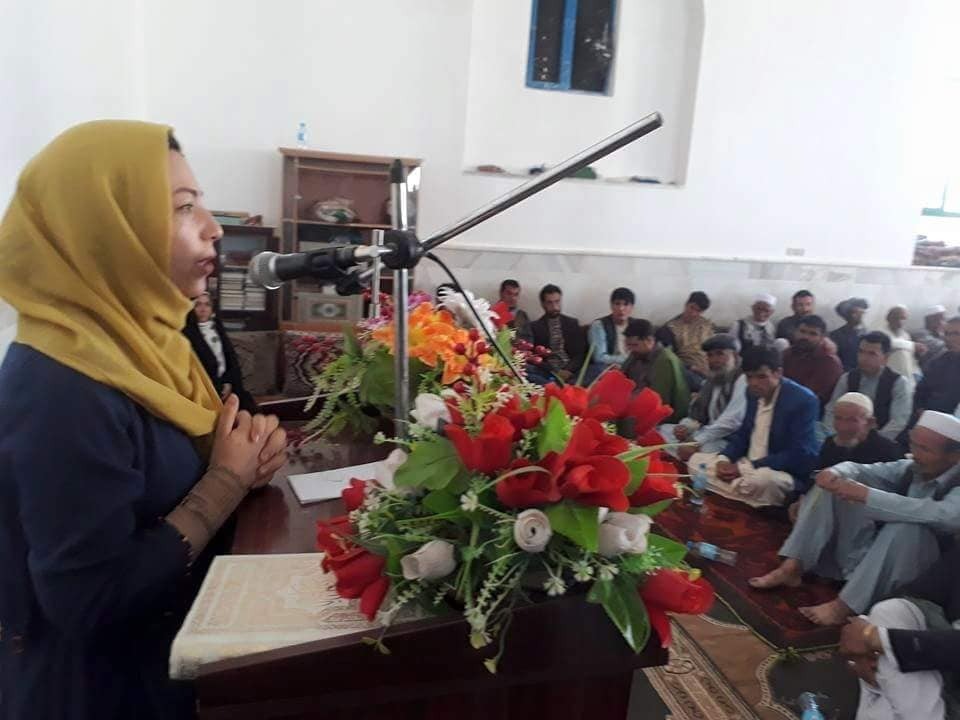
‘Women’s rights activists are leaving… that will severely affect Afghan society’
The Federal speaks to Fatema Jafari, a member of the provincial council of Herat, Afghanistan, and a women’s rights activist

Fatema Jafari is a women’s rights activist. She was a councilwoman in Herat for more than 10 years. As head of the family support committee for three years, she facilitated the creation of an umbrella group of roughly 80 women’s organisations to help coordinate their efforts. Previously she participated in three Loya Jirga Assemblies (consultative councils) on peace and security issues from 2009–2013 and another Peace Loya Jirga in April 2019.
In April 2012, Fatema was invited to the U.S. for the International Visitors Leadership Program, where she attended training, visits and meetings on good governance. A bachelor of law and political science, she participated in two prestigious fellowships in the U.S., the Reagan Fascell Fellowship at National Endowment for Democracy, and Maurice R. Greenberg World Fellowship at Yale University. She has written a book titled, Women Political Participation in Afghanistan. Fatema is a frequent contributor to media and TV shows
She spoke to The Federal.
How did you enter politics? Can you tell us more about your political party and the role of women in Afghanistan?
Let me start from the beginning. When I was just one year old, my family left Afghanistan due to the Soviet Union invasion. They didn’t have a lot of choices; it was either Iran or Pakistan, so they chose to go to Iran. I was raised in Iran as an Afghan refugee child, which was not easy. Soon after I went to school, I realised that I am not the same as other Iranian children because I was not allowed to do the activities that Iranian children could do. For example, when there was a student competition at provincial level, no matter how good I was, I was not allowed to participate because I was an Afghan refugee. In high school I found out that as an Afghan refugee, I am not allowed to go to the university or have a normal job in Iran. In spite of all these difficulties, I finished my high school and I was the first girl in my entire family who got that achievement.

During that time, the Taliban were in power in Afghanistan and I did not have any chance to return to Afghanistan. I could not to go to university due to Iranian rules and I was not allowed to have a job. I was looking around to do something. Finally, I found out that the children of Afghan refugees who came from Afghanistan due to the brutality of the Taliban are not allowed to go to Iranian schools because they were illegal and had no document. I decided to teach them and I started a home school secretly because it was not legal. If the Iranian government knew about us, they would close it and would sent us back to Afghanistan. For three years I continued teaching Afghan children in this way and managed that school. During this time, I realised how hard it is to be an illegal Afghan child in a country like Iran.
In 2001, the United States defeating the Taliban was the best news of my entire life. We decided to return to Afghanistan and started a new life. In the first year, I started to study midwifery in Herat, which was my dream for many years. After finishing midwifery school I took a job as a midwife in a health clinic in Herat. Due to the nature of my job, I was in close contact with women and listened to their problems – from health issues to social and domestic problems. I saw how they are suffering from and struggling with a dominant patriarchal social system, with domestic violence and insecurity and poverty.
After working for two years as a midwife in different clinics, I became a midwifery teacher at the Herat Institute of Health Science. I started to expand my social activities and took membership of a few civil society organisations and associations. Then I thought to myself that I have to do something more for Afghan women to change their situation. Finally, in 2009 I decided to run for provincial council election, which was like local parliament in Afghanistan. Provincial councils were electoral body of local government in Afghanistan and very powerful in the province.
When I shared my decision with my family, my husband encouraged me and said you have a great experience of working with women and you can be a real voice of women in the provincial council. But other members of my family were concerned about security, financial consequences and many other barriers. They told me, It is very difficult for you to compete against prominent figures of Herat and no one supports you because you are a young women and don’t have a good chance to win the election. They were right but I was really determined to try my chance and to do my best.
Finally, I ran for the election despite a part of my family not agreeing with it. I tried to be more creative during the campaign. I used media – mainly radio and television. I attended TV debates and I tried to discuss my plans for provincial council clearly. I focused mainly on women’s votes, which was so risky because in Afghanistan most of the time male members of the family make decisions. But during extensive meetings and programmes, I could convince many women in my community that they have enough power to change their situations and they can have their own representatives in the provincial council. I specially held a big demonstration that guaranteed my win. My volunteer campaigners, who consisted of my students of midwifery school, my friends and like-minded women, went door to door and asked girls and women to attend an only-female gathering. At a specific time and location, hundreds of women came together in the street and they held the first female demonstration in Herat. I told them you think you have just one vote and with only one vote you cannot change your situation, but now look at you, you are hundreds of women, and you can have a representative in provincial council to raise your voice and advocate for your problems. As a result, I was the ninth elected representative with a high vote out of 184 candidates.
How long have you been in The Netherlands?
In November 2020 I moved to The Netherlands due to serious security threats.

How were the last 20 years for women in Afghanistan?
During the last 20 years, mostly due to political pressure of the international community, Afghan leaders respected women’s rights and human rights, but in reality they didn’t really believe in women’s rights or gender equality. Most of Afghan leaders were those jihadi leaders who fought to set an Islamic republic in Afghanistan. After the withdrawal of the Soviet Union, they start fighting with each other. During the short period of mujahideen administration in Kabul, they widely violated human rights and women’s rights. All these leaders were in power during the last 20 years and they never stopped competing with each other. This time they have tried to show themselves as democrats. In some provinces like the eastern and southern parts of Afghanistan, where the media are limited and access of women to legal support is limited, they are violating people’s rights. However, in some provinces like Herat women can enter universities and schools and they can take jobs in governmental offices.
In Herat, more than 30 per cent of governmental office staff were women, more than 50 per cent of students of Herat University were women, Herat’s girls and women could use the opportunity of democracy to promote their situations.
We hear lots of stories about the life of women in Afghanistan. What’s your perspective?
Horrifying news is more attractive than positive news and media are looking to find more attractive news. In reality, Afghan women are always on the frontline… fighting Islamic extremism, terrorism. They suffer from deep and historic deprivation. During the last two decades, they sacrificed their lives, their family. For example, you hear a father giving money to some insurgents to kidnap his daughter, a policewoman who worked for democracy, because he is pro-Taliban. Those Talibans tortured the girl and carved her eyes out. It is terrible news for you as outsider but this horrific news can be seen in another way, which is that Afghan women now make their choices independently knowing all of these consequences and they choose to serve democracy and freedom. They choose to be a police and active member of society. Other Afghan girls hear this story but they don’t give up their position in the police or other places. They choose their path with open eyes and they are fighting for their rights and I see this as a great achievement of two decades of democracy in Afghanistan. I hope media can find other sides of the news in Afghanistan too.
What do you think about the international community’s response to the present developments?
I hope they don’t rush to recognise Taliban. With the Taliban in power, the country will become not only a place for terrorism but a safe haven for Muslim extremists with strong connections to the Taliban. This will not affect only the people of Afghanistan… the consequences will spread to other countries and then it will affect the world.
The developments in Afghanistan play an important role in demonising Islam…
It’s exactly true, you can see the Kabul airport, thousands of people due to fear of an Islamic state rushed to flee the country. Islamic states, regardless of modern extensions like republics or democracy, have common way of governing the people – religious and political tyranny. You can see this in Saudi Arabia, the Islamic Republic of Pakistan or in Islamic Republic of Iran. It’s really funny that 99 per cent of people of Afghanistan are Muslim. Most of them hate the Taliban. Most of them don’t want to go to one of the Islamic country of their neighbourhood or rich and powerful Islamic countries like Saudi Arabia. People of Afghanistan don’t want to live in an Islamic State of the Taliban. For me as a women who has lived in an Islamic country, the Taliban, ISIS, Islamic states, Islamic republic are the same things.
What is the future of girls in Afghanistan?
It depends on the position of the international community. These days many human rights activists, women’s rights activists and experienced women are leaving the country due to serious security threats against them. Their absence is truly irreparable for the Afghan society. I think the weak position of the international community and the mass exodus of educated and skilled women will severely affect Afghan society.


